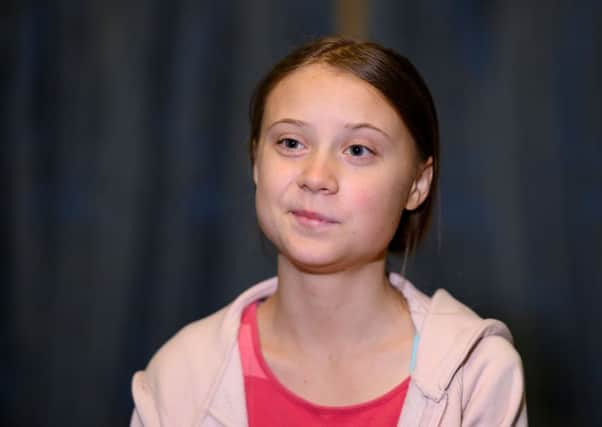Climate strikes: We must listen to the children and the scientists – leader comment


From Scotland to the Solomon Islands, Germany to New Zealand, Afghanistan to Greece, the US to Bangladesh, they marched in their millions. Mostly young people, including some who took the day of school in defiance of the authorities, they staged an extraordinary show of peaceful force in the name of ramping up humanity’s response to climate change.
It is astonishing to think that what is now said to be the largest youth-led movement in the world began when a teenager with Asperger’s syndrome, Greta Thunberg, decided she would go on strike from school, not to enjoy a day off, but to protest outside the Swedish Parliament.
Advertisement
Hide AdAdvertisement
Hide AdIt is an event that may soon come to be regarded as a major turning point in history, one of the rare moments when a single act by one person shapes the fate of countless millions.
Among the placards carried by the protesters yesterday was one which read: “We are skipping our lessons to teach you one.”
This controversial message is not without its problems. Children do need to go to school. If pupils strike for climate change one day, why not for any number of issues considered to be vital by the youngsters concerned? But the words of Professor Sir David King, formerly chief scientific adviser to the UK government, earlier this week – that it is “appropriate to be scared” about the pace of climate change – perhaps put what some might dismiss as ‘childish’ protests in a different light. “We predicted temperatures would rise, but we didn’t foresee these sorts of extreme events we’re getting so soon,” he said.
The basics of the science are simple and well-understood. As long ago as 1895, Swedish scientist Svante Arrhenius wrote an academic paper in which he predicted the world’s temperature would rise as the amount of carbon dioxide in the atmosphere increased.
It is less clear how the planet as a whole will react. But the warmer it gets, the greater the risk of truly ‘dangerous” effects – like deadly heatwaves that render large areas of territory uninhabitable, ‘once-in-a-century’ storms becoming commonplace, and profound changes to the ecosystems of plants and animals that are already putting some species under severe pressure.
We should listen to the scientists. We should listen to the children. They are speaking with one voice. And it is getting louder.
